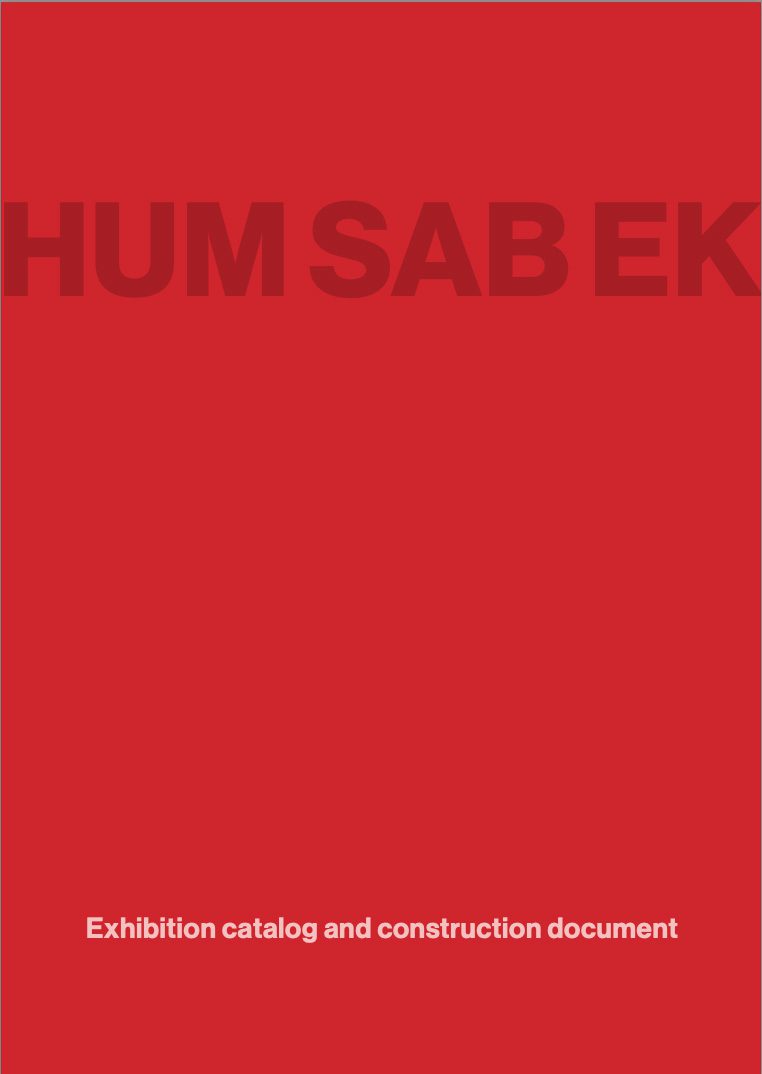HUM SAB EK (We Are One) – Multimedia Exhibition
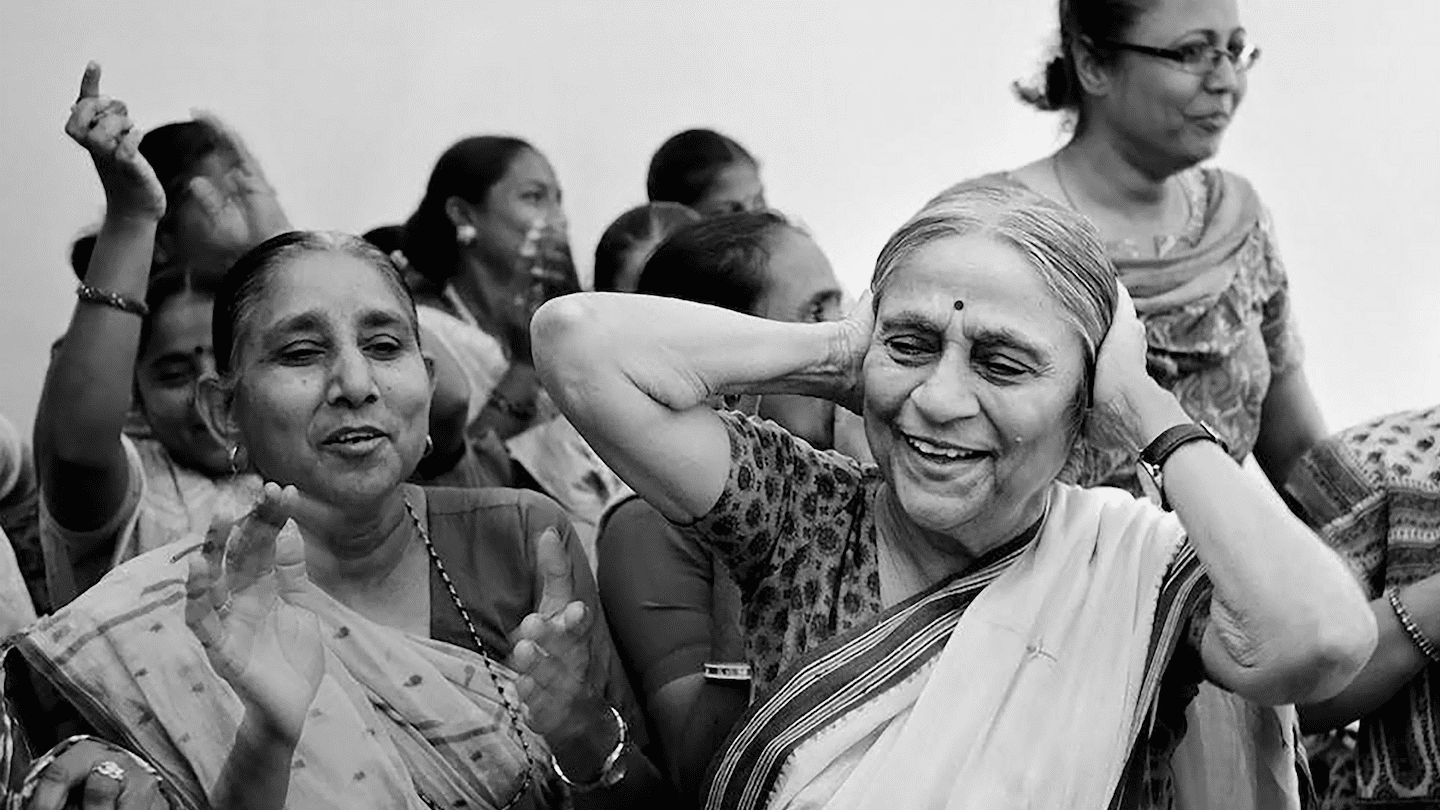
HUM SAB EK (We Are One) highlights the voices and experiences of women in India’s informal sector during the COVID-19 pandemic. It is an immersive multimedia traveling exhibition that grew organically from a survey of over 1,000 households in Western India and 30 hours of oral testimony with members of India’s Self Employed Women’s Association (SEWA).
After being hosted at Harvard University from April to August 2024, the exhibition stopped at the Clinton Global Initiative in New York City in September 2024; The World Bank Headquarters in Washington, DC, in January 2025; the Johns Hopkins University in Washington, DC, in May 2025; and the International Labour Organization (ILO) in Geneva, Switzerland, in May and June 2025. The exhibition will continue its journey around the globe.
Learn more about the exhibition and its journey below.
ABOUT THE EXHIBITION
This exhibition is inspired by the actions of poor working women in India, who have survived societal and state indifference through half a century of relentless organizing. HUM SAB EK (We Are One) is the rallying cry of the 2.9 million strong Self Employed Women’s Association (SEWA), situated at the confluence of the labor movement, the cooperative movement, and the women’s movement.
In 2022, Dr. Balsari’s team studied SEWA’s response to the impact of the pandemic on its members. The study comprised 30 hours of oral histories and a survey of over 1000 households. Unburdened by the luxury of conformation, these disadvantaged but extremely empowered women were found to have implemented solutions that were practical, expedient, and mutually beneficial.
The origins, scale and impact of public health emergencies, like the COVID-19 pandemic, are determined by underlying societal, economic and political arrangements. The vast material resources mobilized in response to the pandemic were unable to offset long years of poor investments in communities. The story of SEWA’s response to the pandemic is important because it demonstrates how such investments help mitigate against intractable problems.
The exhibition has been designed by an interdisciplinary team of graduate students working closely with women leaders at the forefront of the pandemic response. At each stop, global artists and scholars are invited to work with the archival material and with SEWA’s members to retell, reinterpret, and rebuild futures. The oral histories are donated to the Harvard Countway Library’s History of Medicine archives.
PROJECT TEAM
Satchit Balsari, Associate Professor, Harvard Medical School, Beth Israel Deaconess Medical Center
Hiteshree Das, MDes ’25
Robert McCarthy, BA ’23
William Boles, MLA ’26
Karthik Girish, MUP ’25
Deepak Ramola, EdM ’23
Shariq M. Shah, MDes ’24
Abhishek Bhatia, MS ’17
Kartikeya Bhatotia, MPP ’24
Selmon Rafey, Mittal Institute
Bettina Wyler, Mittal Institute
Amra Fatima Khan, Visiting Artist Fellow
Vishwesh Surve, MDes Candidate at the National Institute of Design
Vishal Pathak, All India Disaster Mitigation Institute
Members of the Self Employed Women’s Association
EXHIBITION JOURNEY
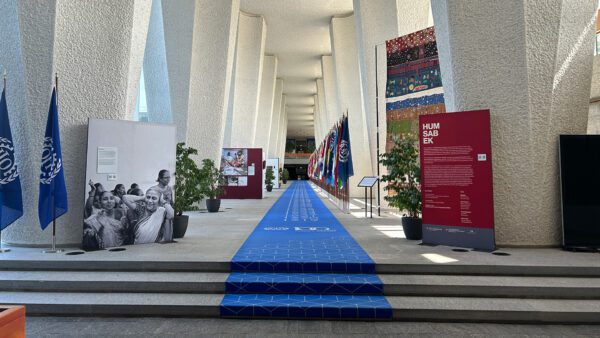 International Labour Organization (ILO)
International Labour Organization (ILO)
Geneva, Switzerland
May 30 to June 2025
The exhibition is on display at the International Labor Organization Headquarters in Geneva, Switzerland, where it is open to ILO staff and the nearly 5,000 delegates from 187 countries attending the International Labor Conference from June 2 to 13. Its presence at this location is of particular salience to members of the Self Employed Women’s Association (SEWA), whose stories of reliance and nurturance it captures, and to workers worldwide. The exhibit is now accessible in French, Spanish, and English.
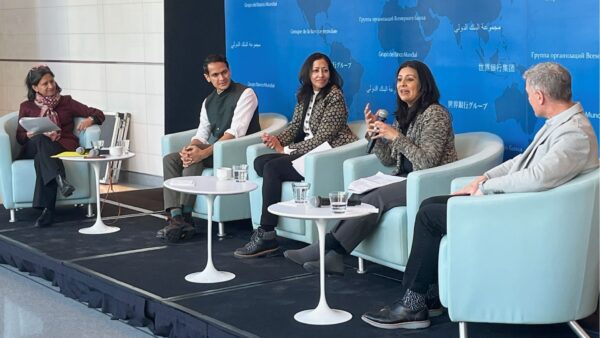 World Bank Headquarters
World Bank Headquarters
Washington, DC
January 2025
In January 2025, the exhibition was showcased at The World Bank Headquarters’ Glass Gallery and the main atrium in Washington, DC. An opening panel discussion addressed themes ranging from the role of a researcher working with communities, how to achieve structural societal changes, including overcoming poverty by shifting decision-making to the poor, and the need to put local communities at the center of development strategies.
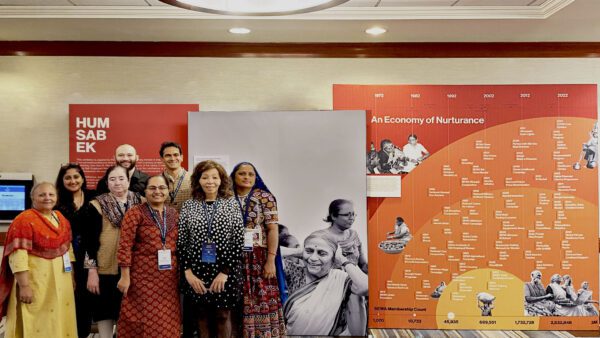 Clinton Global Initiative
Clinton Global Initiative
New York City
September 23-24, 2024
The exhibition was showcased at the Clinton Global Initiative 2024 Annual Meeting in New York City, marking the first stop outside Harvard University and the onset of the next phase, Jatra—a traveling exhibition that catalyzes a series of dialogues, first in the U.S. and then in other regions.
Learn more here
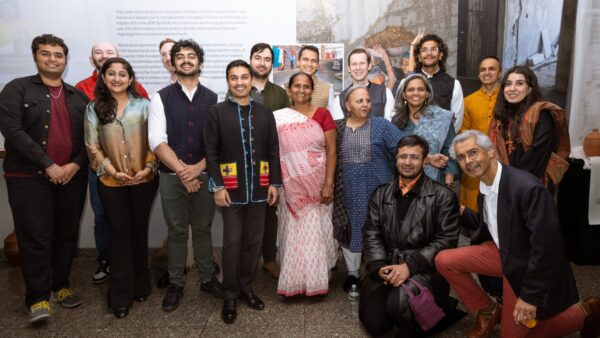 Harvard University
Harvard University
Center for Government and International Studies, Cambridge
April – August 2024
The HUM SAB EK (We Are One) exhibition was successfully launched on April 15, 2024, at CGIS South on Harvard’s campus in Cambridge. The well-attended opening event celebrated the powerful responses of India’s Self Employed Women’s Association (SEWA) to the COVID-19 pandemic, and the way a dynamic team of Harvard graduate students, along with SEWA members themselves, put together a comprehensive multi-media exhibition at Harvard. The exhibition was also featured at the Mittal Institute Annual Symposium on May 3, 2024.
Watch a curated tour here
Watch the panel discussion “Inside the HUM SAB EK exhibition – Cambridge Annual Symposium” here
Read about the opening panel here and watch it here
RESOURCES
News and Updates
March 18, 2025: Empowering Women in the Informal Economy: Insights from SEWA’s Community-Driven Approach in India
Harvard Global Health Institute (June 28, 2024): Oral Histories, Microsensors, and Parametric Insurance: Poor Women Workers Drive the Research Agenda (Virtual Coffee Hour)
Harvard Gazette (May 22, 2024): ‘Tell the cities about us … and tell our neighbors about what we do’
Mid-day (May 5, 2024): Strength in numbers
Harvard SEAS (April 15, 2024): Telling workers’ stories through technology
Mittal Institute News (April 10, 2024): It Takes a Village: Harvard Students Reflect on Creating the HUM SAB EK (We Are One) Exhibition
Mittal Institute News (April 3, 2024): Behind the Scenes of the Exhibition “HUM SAB EK – We Are One” with Dr. Satchit Balsari
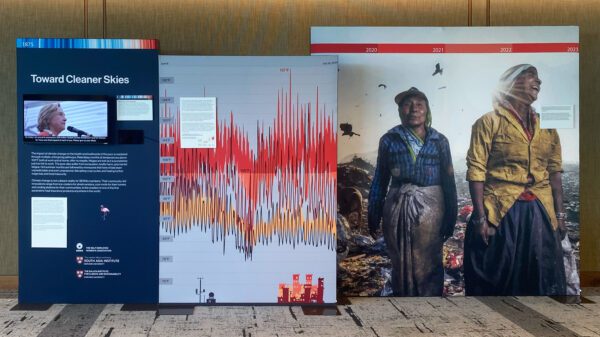 Johns Hopkins University
Johns Hopkins University